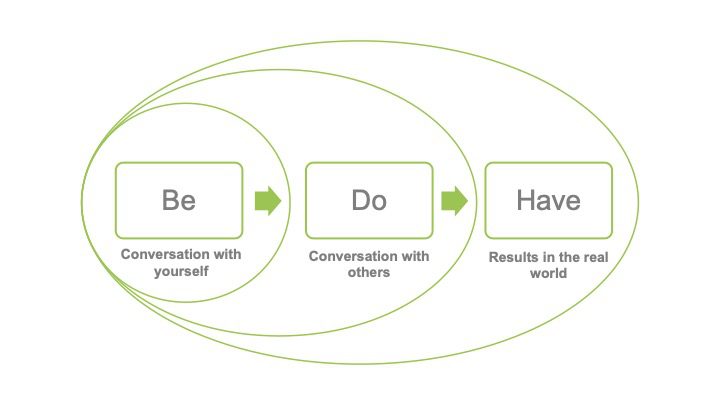The Algorithmic Classroom
South Korea’s ambitious experiment with AI in classrooms holds lessons for the world
A conversation with Jason Jay and Gabriel Grant

Jason Jay and Gabriel Grant are the co-authors of the recently published book Breaking Through Gridlock. Impact entrepreneurs often need to have difficult conversations across and within organizations to improve and increase the impact of their work. This book offers strategies on how to approach those conversations.
Jason is the Director of the Sustainability Initiative at the MIT Sloan School of Management. He teaches courses on strategy and innovation for sustainable business to hundreds of leaders every year. Gabriel is a co-founder of the Byron Fellowship Educational Foundation for social entrepreneurs, and the founder of Human Partners, where he coaches purpose-led business leaders. I had the pleasure of catching up with Jason (I last worked with him a few years ago) and meeting Gabriel to talk about their book and the strategies outlined in it.
Both of us develop social entrepreneurs and intrapreneurs for a living — people organizing to support the flourishing of human and other life. In these communities, and in our own experience, we see some common aspirations and challenges. Everyone wants to be an agent of change. Everyone understands that conversation is our access to change — with colleagues, customers, suppliers, CFOs, and investors. But too often we find that our conversations get stuck. Or we avoid conversations entirely because we are afraid of how they might go.
We learned the hard way through our own stumbling and reflections that our own way of being often determined our success or failure in these conversations. Where we were failing, we were showing up as arrogant, passive-aggressive, and know-it-all, more interested in being right and righteous than in connecting with the other person. Or we would run a million excuses through our heads for why it would be the safer path to just steer clear of “hot” topics. It was only when we noticed this and made a choice to approach people with a new way of being — generosity, listening — that we really achieved anything. So we started sharing this approach with aspiring intrapreneurs and entrepreneurs, with executives, and with other universities and NGOs, iterating and refining the “curriculum” as we went. We were super inspired by the results we saw, because people were both strengthening relationships that mattered to them, and making progress on the big issues of our time. At a certain point, other people who trained social entrepreneurs started asking us to write down the practices and stories in a book that they could use in their work. We’re excited to engage with Impact Entrepreneur in support of our core audience.

It is hard work to engage people who aren’t already on your side. It requires vulnerability to share yourself. You have to go back into uncomfortable conversations, sometimes repeatedly, and acknowledge your own missteps. It’s a lot easier to just… settle. “Well, at least I expressed my view” or “I think it’s better to keep the peace.” These are consolation prizes, what we call “bait”. We get to be right, righteous, and certain in our own perspective, or stay safe in our own corner. It’s when we let go of that bait that we open ourselves up to a more empathetic way of being, and start to make progress.
Gabriel Grant’s Insights on Having Critical Conversations
We also fall into a trap around “making the business case.” For example, let’s say you want to approach a corporate CFO to invest capital in reducing the firm’s environmental footprint and mentoring prospective employees from underrepresented minority groups. You might be showing up right at a moment when they are under extreme pressure from the CEO and investor base to meet a high hurdle rate for financial return on their capital. So, if you can’t translate your initiative into their ROI language, you’re just adding more work, complexity, and stress to their job. Making the business case in that moment is a kind of empathy.
If you only frame what you are doing in terms of “danger and dollars” — the material risks and benefits of action and inaction, you’ve cut off the real source of your own internal motivation
On the other hand, you and that CFO are human beings with a mix of passions and concerns, inside and outside the workplace. — the love you have for people and planet that motivates you to innovate on their behalf. You haven’t shared your heart, and you have created zero context for the other person to share theirs. This makes the whole relationship much less conducive to real learning and innovation. Those ROI numbers might take some iteration, hard work, and creativity, which requires committing much more of yourself than a simple “business case pitch” will allow. So, we help people dare to share a fuller set of motivations, to understand the deeper motivations of people they’re working with, and inside that complexity, to innovate together.
Jason Jay Discusses How to Open Closed Doors
We have certainly drawn inspiration from other books in this space, particularly Getting to Yes by Fisher and Uri, and Crucial Conversations by Patterson and colleagues. But those books weren’t written by social entrepreneurs. They had the goal of supporting one-on-one conversations, not transforming organizations, social movements, and society. Our book supports people in engaging those closest to them, then using the muscles they build to engage people in their organizations, then helping this new approach infuse whole social movements around social justice and environmental sustainability. We cite an important study that people’s perceptions of activists as self-righteous, militant, and over-reactive really limits our effectiveness. The bait of right, righteous, certain, and safe are present for movements as well as individuals. What if our movements were characterized by ways of being aligned with the future we want to create? What if we were joyous, generous, supportive, collaborative, innovative, inclusive, and loving? We might inspire a lot more people to join our efforts, build more power, have more impact, and enjoy the work more ourselves. Our book supports people, organizations, and movements in this journey.
Related Content
Comments
Deep Dives

Featuring
Clarisse Awamengwi
IE Correspondent
July 17 - 12:00 PM EST

Featuring
Russell McLeod
July 24 - 12:00 PM EST
RECENT
Editor's Picks
Webinars
News & Events
Subscribe to our newsletter to receive updates about new Magazine content and upcoming webinars, deep dives, and events.
Become a Premium Member to access the full library of webinars and deep dives, exclusive membership portal, member directory, message board, and curated live chats.
At Impact Entrepreneur, we champion fearless, independent journalism and education, spotlighting the inspiring changemakers building the Impact Economy. Diversity, equity, sustainability, and democracy face unprecedented threats from misinformation, powerful interests, and systemic inequities.
We believe a sustainable and equitable future is possible—but we can't achieve it without your help. Our independent voice depends entirely on support from changemakers like you.
Please step up today. Your donation—no matter the size—ensures we continue delivering impactful journalism and education that push boundaries and hold power accountable.
Join us in protecting what truly matters. It only takes a minute to make a real difference.
0 Comments